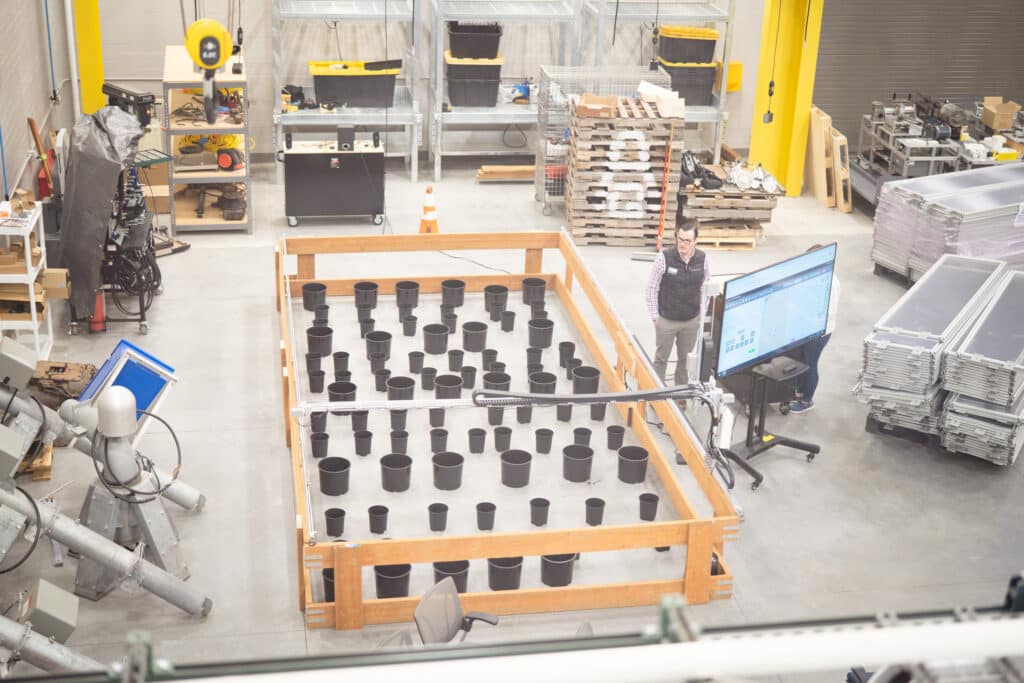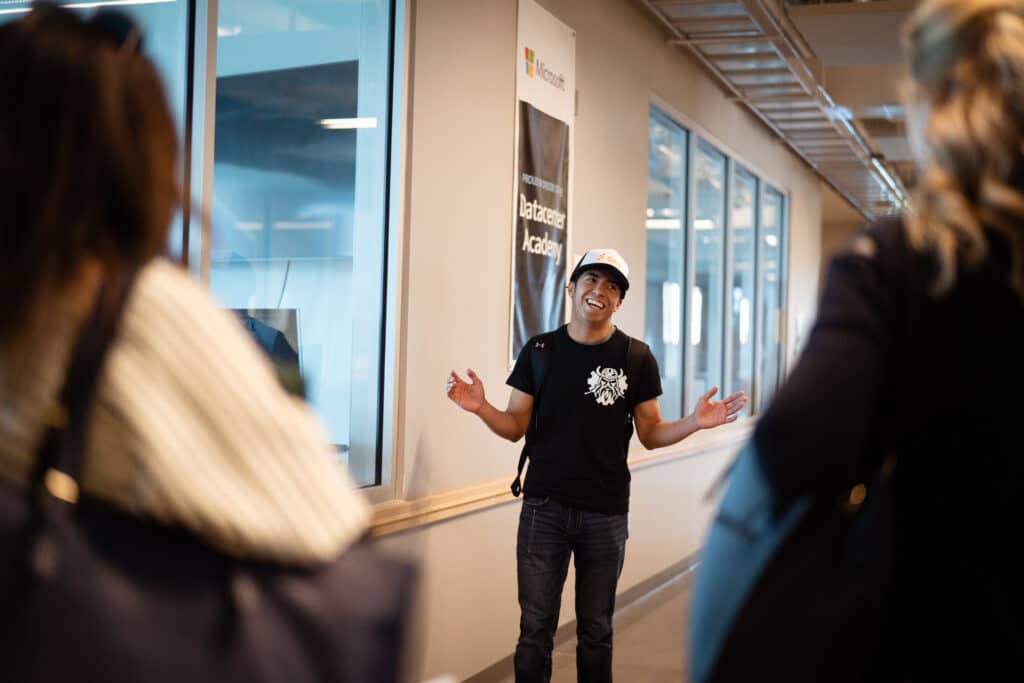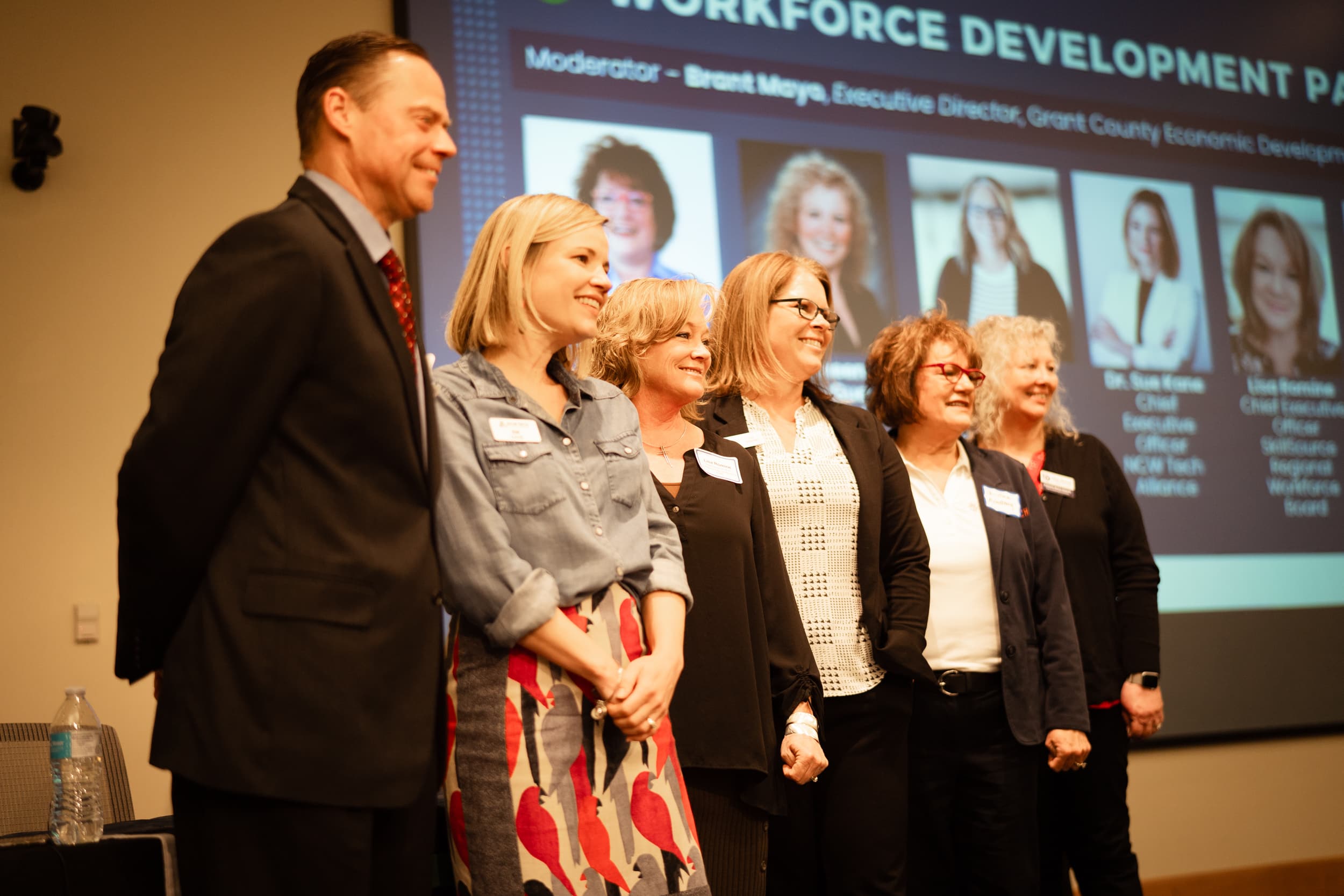“Today is the slowest day. Tomorrow’s going to be faster.” – Monica Brummer, Director, PNW Center of Excellence for Clean Energy
The need is growing for a skilled workforce that can keep up with the clean energy demands and technological advancements of today and tomorrow. That was the context for the Building the Future Energy Workforce at Big Bend Community College on April 11, 2024.
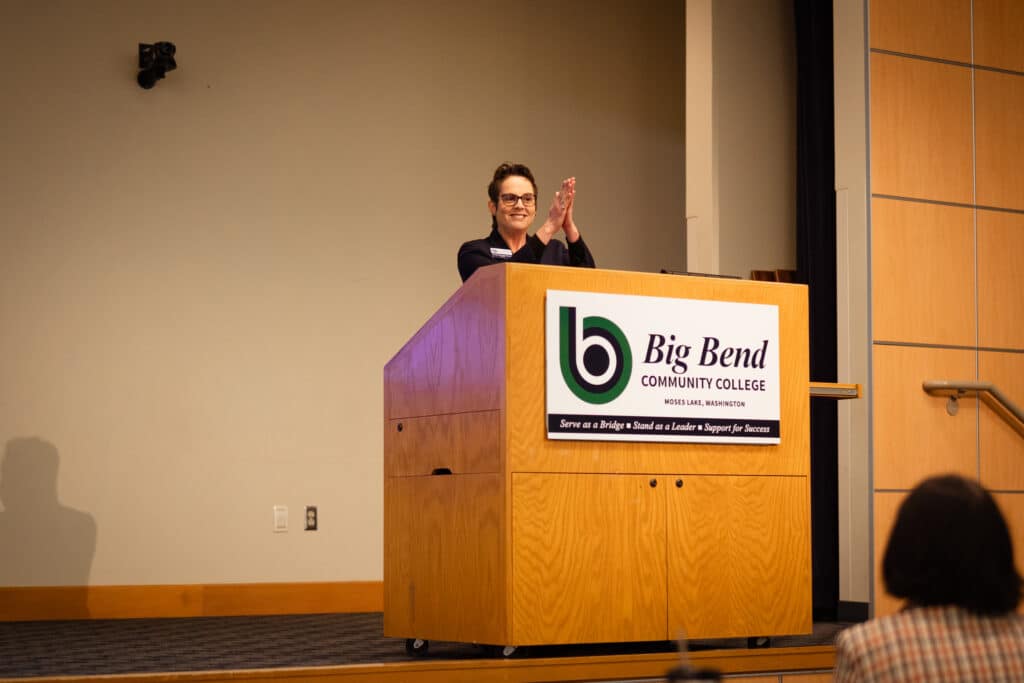
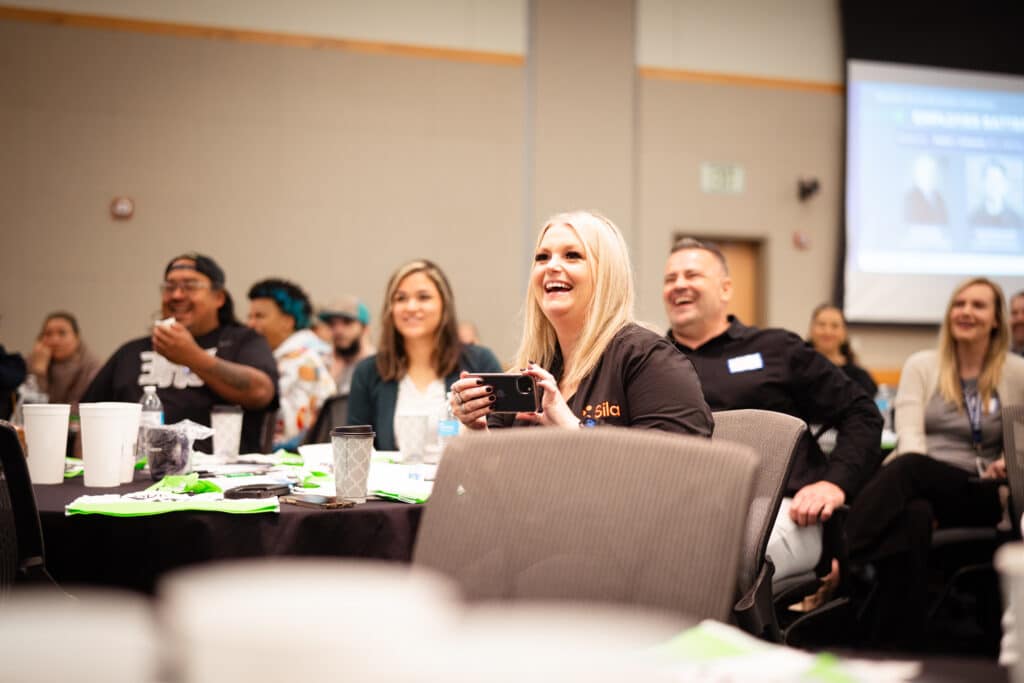
Moses Lake and the Columbia Basin are home to EV (electric vehicle) innovation and battery manufacturing. The conference brought together industry representatives, workforce experts, educators, and legislators to discuss the current landscape, the potential for individuals and communities, and examined the gaps that need to be filled in order to reach that potential.
Daniel T. Schwartz, Director of the University of Washington’s Clean Energy Institute, was the morning’s keynote speaker. Schwartz shared survey data that revealed which aspects of the emerging battery industry workforce could be met at various educational institutions, from Environmental Engineering to Operation and Maintenance of Systems, Prototyping, and Chemical Science and more. The survey respondents shared which of these special skills would require Vocational Training, In-house Training, a two-year Community College certificate, or a four-year or post-graduate degree from a university, with a strong emphasis focused on the need for the latter. A Graduate Certificate in Battery Engineering will launch in the Winter of 2024 at UW which helps to address the more advanced education requirements. A critical obstacle will then be to recruit and retain that talent within the Columbia Basin.
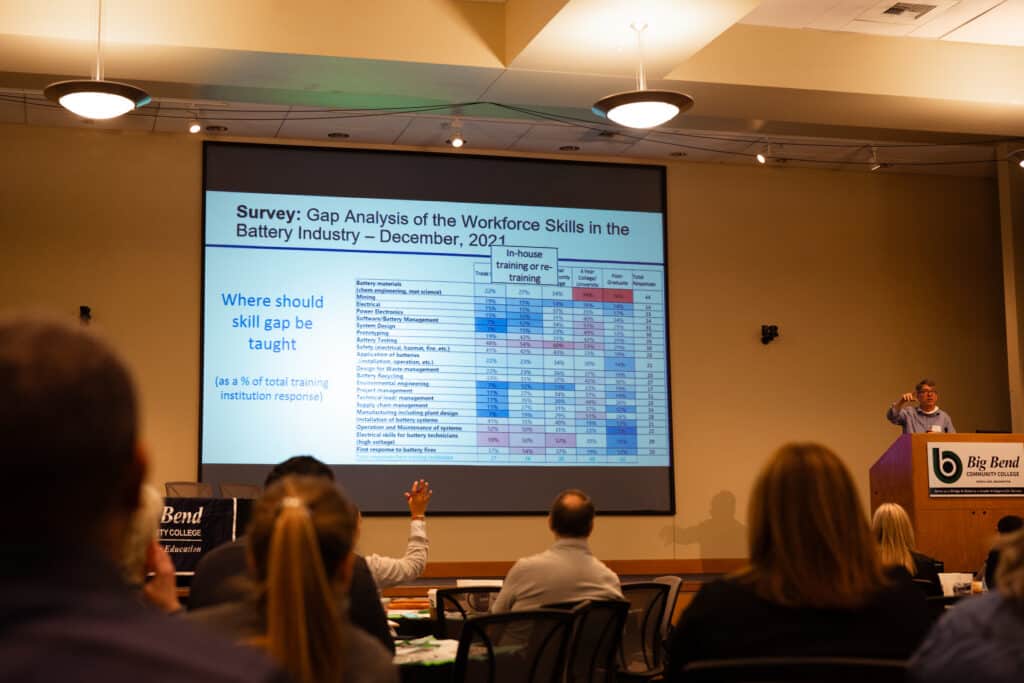
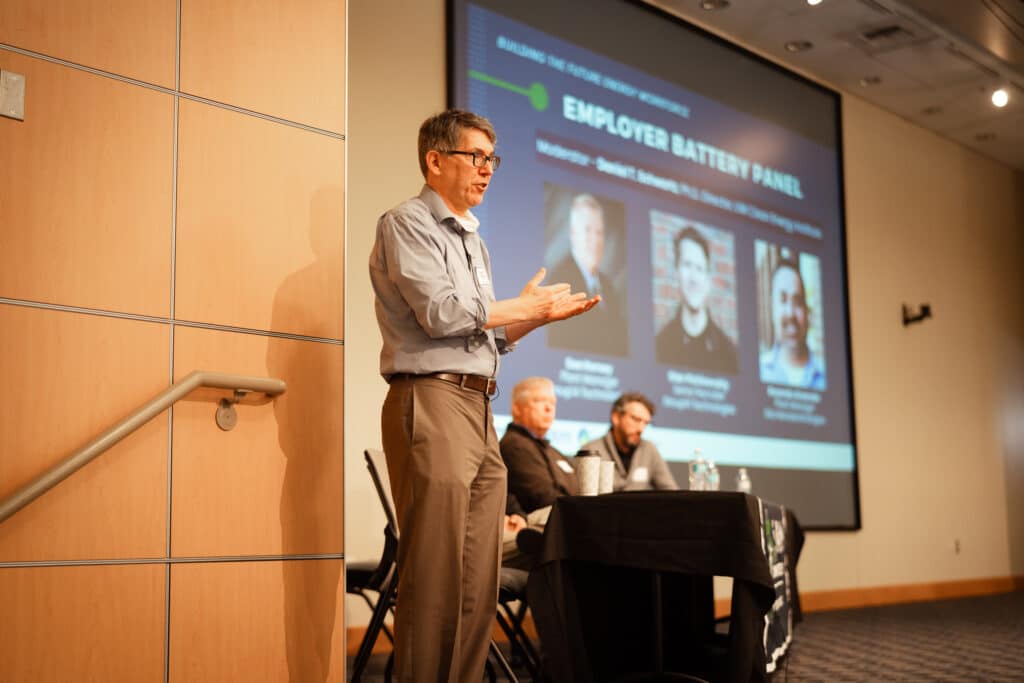
Sila Nanotechnologies and Group14 Technologies are two leading battery manufacturers in the Columbia Basin. Conference panelists included Don Kersey, plant manager for Group14, Stan Pichinevskiy, senior recruiter for Group14, and Rosendo Alvarado, plant manager for Sila. Rachelle Ames, VP of Economic Development at the CleanTech Alliance described the need for “coop-etition” amongst manufacturers like Group14 and Sila, noting that a rising tide lifts all ships, and a combined effort to increase awareness and opportunities will strengthen the skilled workforce around emerging energy technologies.
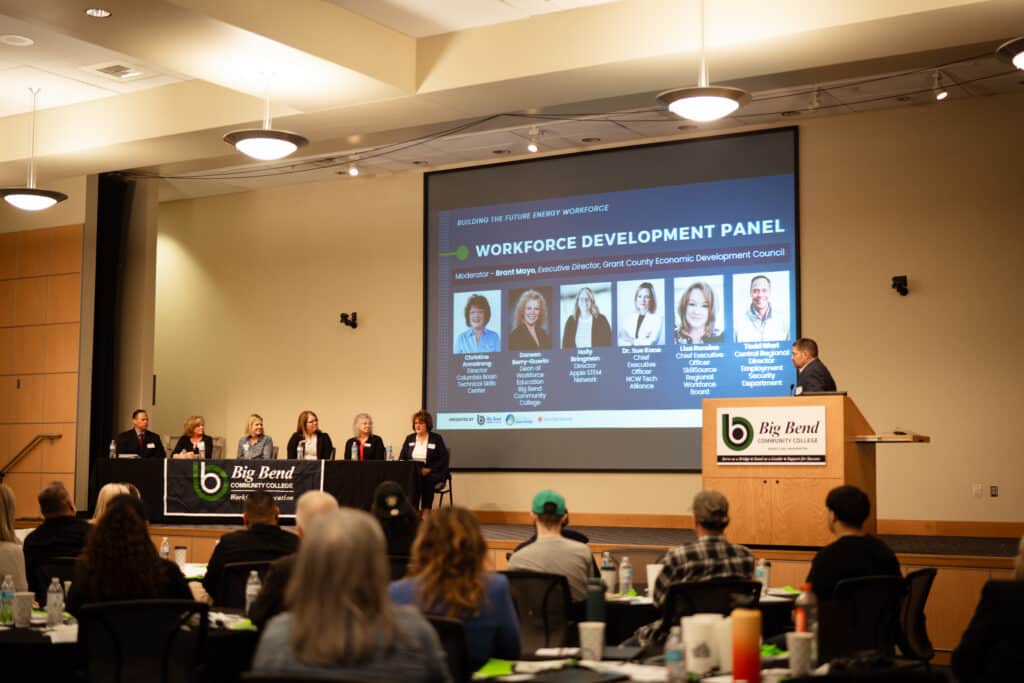
A Workforce Development Panel that included Todd Wurl, Central Regional Director of Employment Security Department (and SkillSource board member), Christine Armstrong, Director of the Columbia Basin Technical Skills Center, Daneen Berry-Guerin, Dean of Workforce Education (BBCC), Holly Bringman, Director of Apple STEM Network, Dr. Sue Kane, CEO of NCW Tech Alliance, and Lisa Romine, CEO of SkillSource Regional Workforce Board, discussed resources and best practices for supporting creative hiring strategies for industry partners. Lisa Romine talked about some of these best practices and how they’ve created opportunities for success through work-based training options such as Incumbent Worker Training, On-the-Job Training, Internships and Apprenticeships.
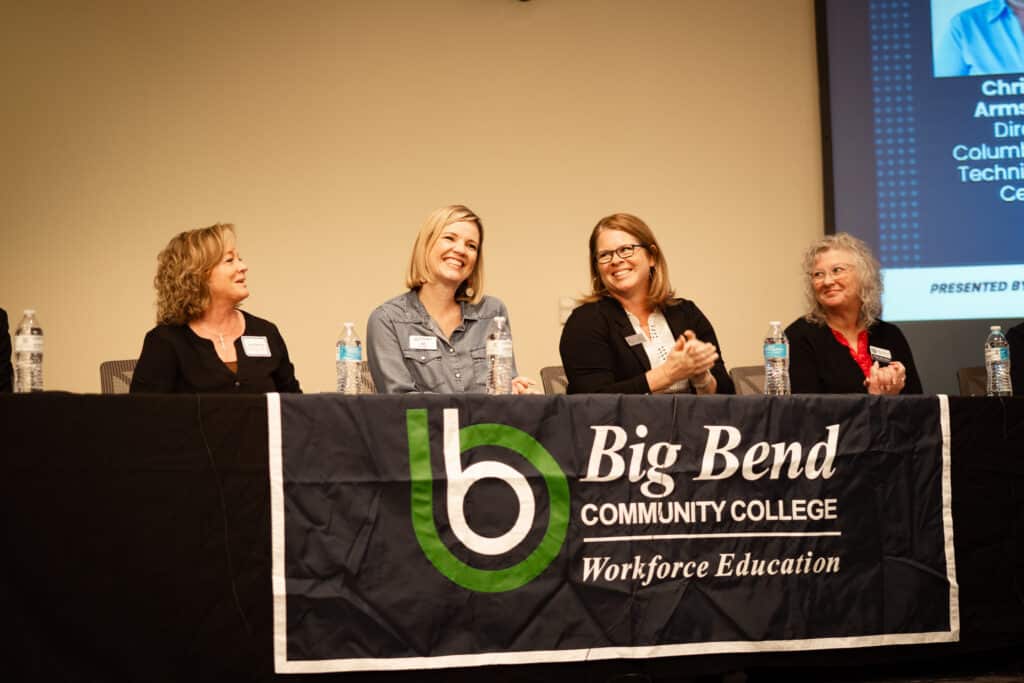

As the adoption of scalable clean energy accelerates, there is a need to create programs and certifications to fill identified skill gaps up to and including four-year and post-graduate degrees. Dr. Sue Kane noted, “We need to build up awareness that looks beyond professions, and instead focuses on professional skills.” Nurturing early awareness in schools, building critical soft skills, and developing foundational technical skills opens doors for career exploration that allows people to live to their full potential.
Representative Vandana Slatter and Representative Alex Ybarra joined Brant Mayo of the Grant County Economic Development Council for a legislative and economic development panel. Representative Ybarra reflected on the transformation to his hometown of Quincy, which has seen improved access to education, healthcare, recreation, and overall quality of life since becoming the home to data centers. Where there is irrefutable industry need — such as data centers and clean energy — and when there is thoughtful collaboration amongst community partners, there is the opportunity to strengthen local economies, and make life better for workers and their families.
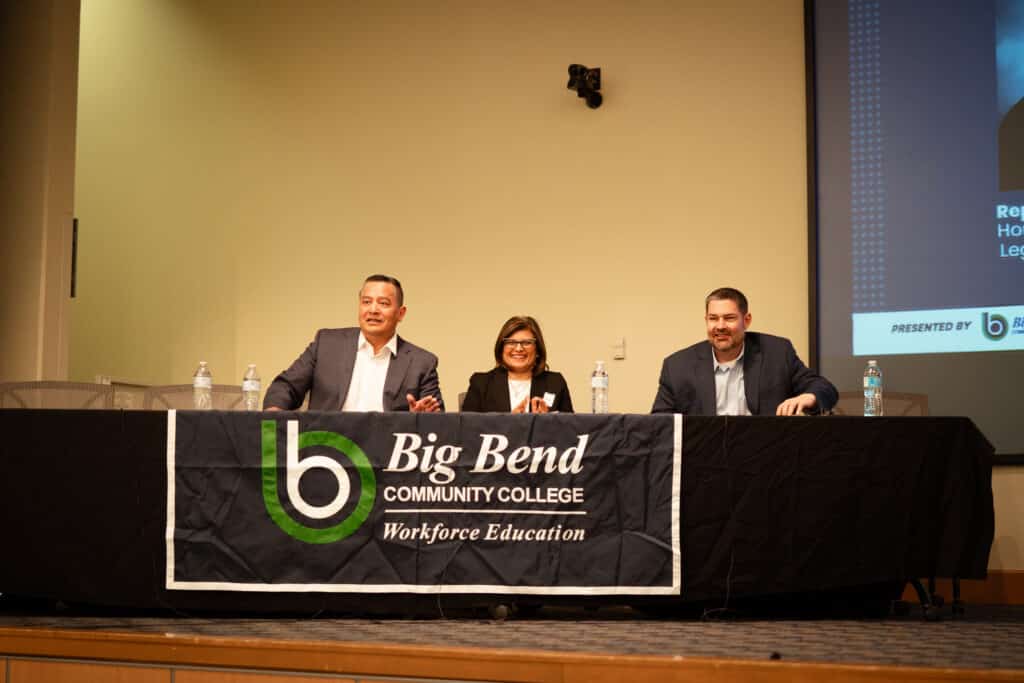
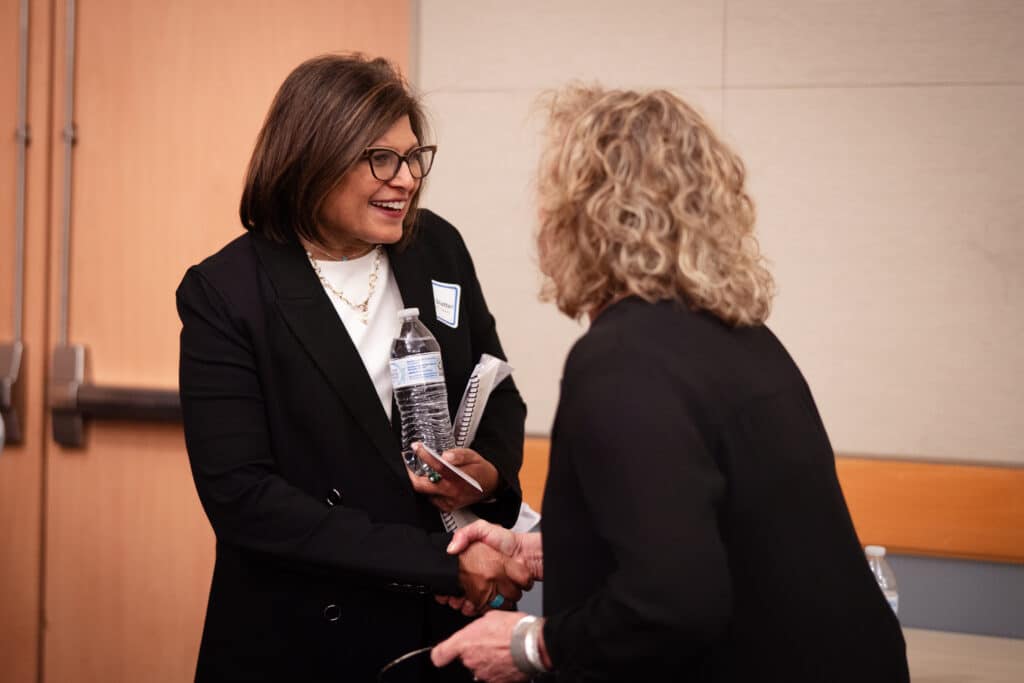
SkillSource would like to thank Big Bend Community College for hosting and convening the conference, with a special thank you to Dr. Sara Thompson Tweedy, college President and SkillSource board member.
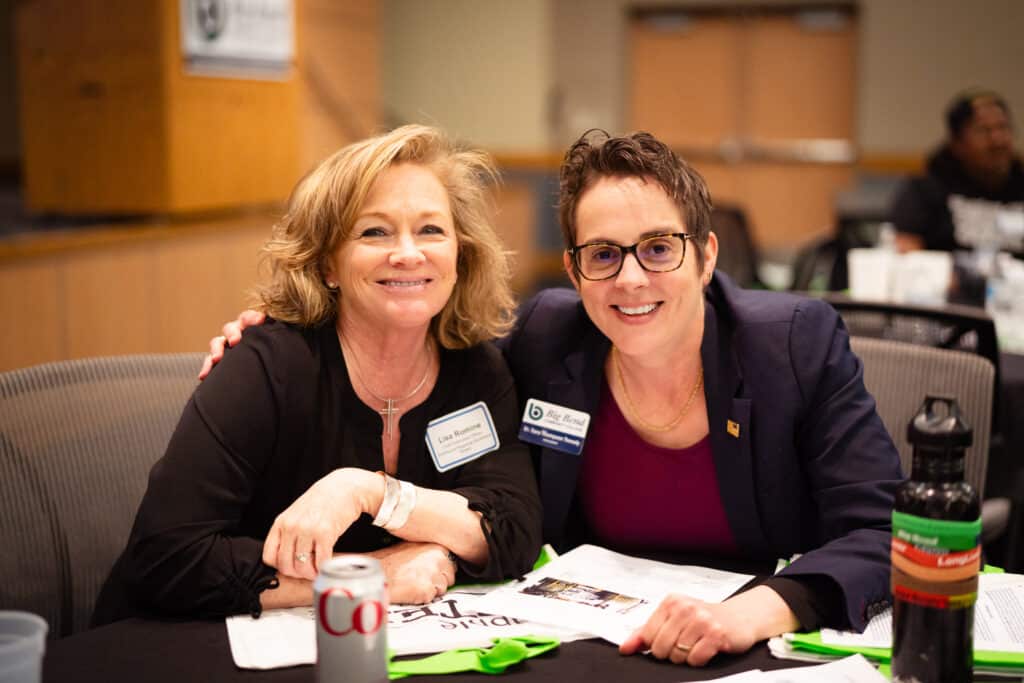
We are grateful to everyone who took the time to share research, expertise, and insight, and who brought thoughtful questions to the panelists. And thank you to the students in the Mechatronics Club who took the time to lead site tours through the Workforce Education Center at Big Bend Community College. We are fortunate to have such an incredible educational institution in our region which has the right resources to help grow the energy workforce of tomorrow!
